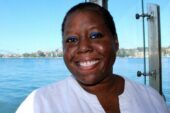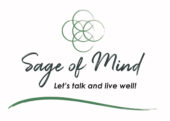
Therapists in Forbes, New South Wales NSW, Australia AU

Kerri Parke
Counsellor/Therapist, Psychotherapist ACA-L2
Hi I’m Kerri (she/her) - welcome to Inclusive Counselling Care. I am originally from London and moved to Sydney for work just over eight years ago.
My main areas of interest include trauma, depression and anxiety, relationships, couples and family counselling and working with clients who are sexually and gender diverse as well as from different racial backgrounds. I work both short and long term with clients.
As an LGBTQI friendly counsellor, I have worked with members of the community with their general therapeutic needs, as well as those who sought support during the coming out process, faced homophobia, biphobia and/or transphobia, were experiencing queer intimate partner abuse and sexual abuse and/or assault
Sage of Mind
Psychologist
At Sage of Mind, we provide assessments and therapy to all ages, with our therapists experienced in a wide variety of presentations.
To ensure we can provide the very best care for all our patients, we are very selective with the therapists who join our team. We require all our clinicians be university qualified with postgraduate qualifications, be fully registered with the Australian Health Practitioners Regulatory Agency (AHPRA) and be approved therapists under Medicare and Work Cover.
At Sage of Mind, we provide evidence-based assessments and treatment for a variety of presentations to meet our clients' needs. Sage of Mind prides itself on being trauma-informed and has a strong developmental focus.
Psychological services are available for all ages and life stages (children, adolescents, adults, couples and families), helping them establish and strengthen meaningful relationships and enhancing their quality of life.
We offer in-person treatment in our Picton and Mittagong offices, as well as phone and video sessions.
Our psychologists are providers under Medicare (Better Access), SIRA / Workers Compensation, NDIS, DVA and PHN Suicide Prevention Service.
Our staff include Clinical Psychologists, Registered Psychologists and a Psychotherapist. Our office is open for assessment and treatment 6 days per week.
Dr Julian Thompson
Psychologist, BSci (Hons), GradDPsych, PGradDPsych, DPsych (Clinical), MAPS
My focus is on creating a comfortable space for my clients, so we can work together and clearly understand the client's issues and needs. I really want meaningful change for my clients, and every person's experience is unique and important. My goal is for clients to feel respected and heard, and to feel that they are getting what they need out of therapy. I offer in-person and online therapy sessions.
Reeta Dabydoyal
Counsellor/Therapist, Certified NLP Master Practitioner, Master Life Coach, Advanced Conversational Hypnotherapy, CDAA, NLPAA
I am a Career Counselor and Life Transition Coach with 15 years' experience specializing in career
transition, workplace stress and injuries (physical & psychological).
I help people overcome the emotional journey of transitions without
feeling lost and stuck so they can step forward with confidence and regain control of their life.
I have extensive experience working with clients from a range of issues including stress, negative behaviours, limiting beliefs, workplace bully & trauma, depression, redundancy, low self esteem, lack of motivation, career change, transitions,
emotional well being and spiritual shift.
No matter what stage you are in your life, my goal is to help you rise and thrive during times of adversity so you can find your inner spark and live a life with meaning and purpose.
If you are looking to let go of negative emotions and are ready to create lasting change, tap into your inner power and go on a journey of personal transformation then this is for you!
You can contact me via text or email to schedule a FREE Strategy call to discuss your challenges, needs and explore what is possible for you on the link below.
http://calendly.com/reeta225
Clair Ramsden
Counsellor/Therapist, (Dip.Couns)
My work is underpinned by academic study, supported by science and qualifications. I focus on practical and logical techniques to support client recovery. It is vital that clients benefit from goal setting and result-focused methods. I'll also concentrate on clients being able to gauge sustainable and measurable results, ensuring their full autonomy, privacy, and confidentiality.





